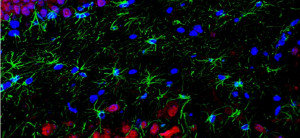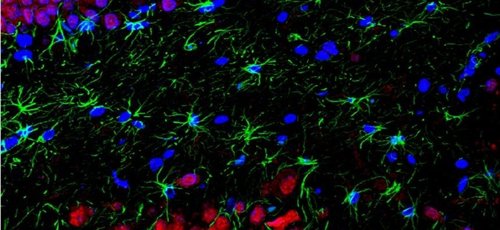Autologous Bone Marrow Stem Cell Transplantation in Temporal Lobe Epilepsy Refractory to Drug Treatment: Phase II study
Project Coordinator: Jaderson Costa da Costa, MD, PhD < / p>
Members: Ricardo Vaz Breda / Daniela Souza de Abreu / Danielle Irigoyen da Costa / Li Li Min / Zaquer Suzana Munhoz Costa / Fernando Cendes / Alessandra Marques Pereira / Carlos Eduardo Silvado / Eduardo Raupp / Denise Cantarelli Machado / André Luis Fernandes Palmini / Lucas P. Schilling / Daniel Rodrigo Marinowic / Marcos Braga Barros / Ricardo Bernardi Soder / Mirna W. Portuguez / Fabricio Bíscaro Pereira / Vera Cristina Terra / Luciano de Paola / Angela Cristina Malheiros Luzo / Denis Xavier Barbieri / Mario Bernardes Wagner / Maria Joana Mader Joaquim / Robertson Alfredo Bodanese Pacheco.
Summary of Work: Phase I of the study aimed to analyze the feasibility and safety of autologous bone marrow stem cell transplantation in patients with temporal lobe epilepsy (ELT), with period from July 2008 to May 2012 (Approved by the Institutional Research Ethics Committee - CEP under number 0931/07 and by CONEP under number 947/2007, CAAE 0194.0.002.000-07). The Protocol was registered in the ClinicalTrials.gov system on 08.06.2009, under the identifier NCT00916266. In that study, 20 adult patients were included, with a diagnosis of ELT confirmed by clinical history, magnetic resonance and video-EEG. The study proved to be feasible and safe. In the three-month evaluation, 30% of the patients had a 100% reduction in the number of crises compared to the pre-procedure period, 25% had a reduction between 70-99% in the number of crises, 25% had a reduction between 50 and 69% in the number of crises and 20% did not show a reduction in the number of crises or had an increase in this value.
In the six-month evaluation, 40% of the patients had a 100% reduction in the number of crises compared to the pre-procedure period, 25% had a reduction between 70-99% in the number of crises, 15% had a reduction between 50 and 69% in the number of crises and 20% showed a reduction in the number of crises below 50% or had an increase in the previous value. The present project is a clinical study, phase II, multicenter, double blind, randomized, placebo controlled, with the participation of 03 Centers: PUCRS (Hospital São Lucas, Epilepsy Surgery Program, Brain Institute of Rio Grande do Sul); UNICAMP - State University of Campinas - Department of Neurology; and UFPR- Federal University of Paraná (Hospital de Clínicas - Epilepsy and EEG Service).
36 adult patients (18-60 years old) with temporal epilepsy with unilateral hippocampal sclerosis, refractory to drug treatment, will be included. The aim of the present study is to assess whether autologous stem cell transplantation (mononuclear fraction) of bone marrow in adult patients with refractory temporal lobe epilepsy with unilateral mesial temporal sclerosis is capable of producing control or reduction in the frequency of epileptic seizures. , reduction of epileptogenic activity, improvement of neuropsychological scores and alteration in the compromised hippocampal structure or in other areas of the brain when evaluated by magnetic resonance imaging.
Research areas involved: chemistry, pharmacy, medicine.
Funding Entity: CNPq
Check the articles published with the research theme:



